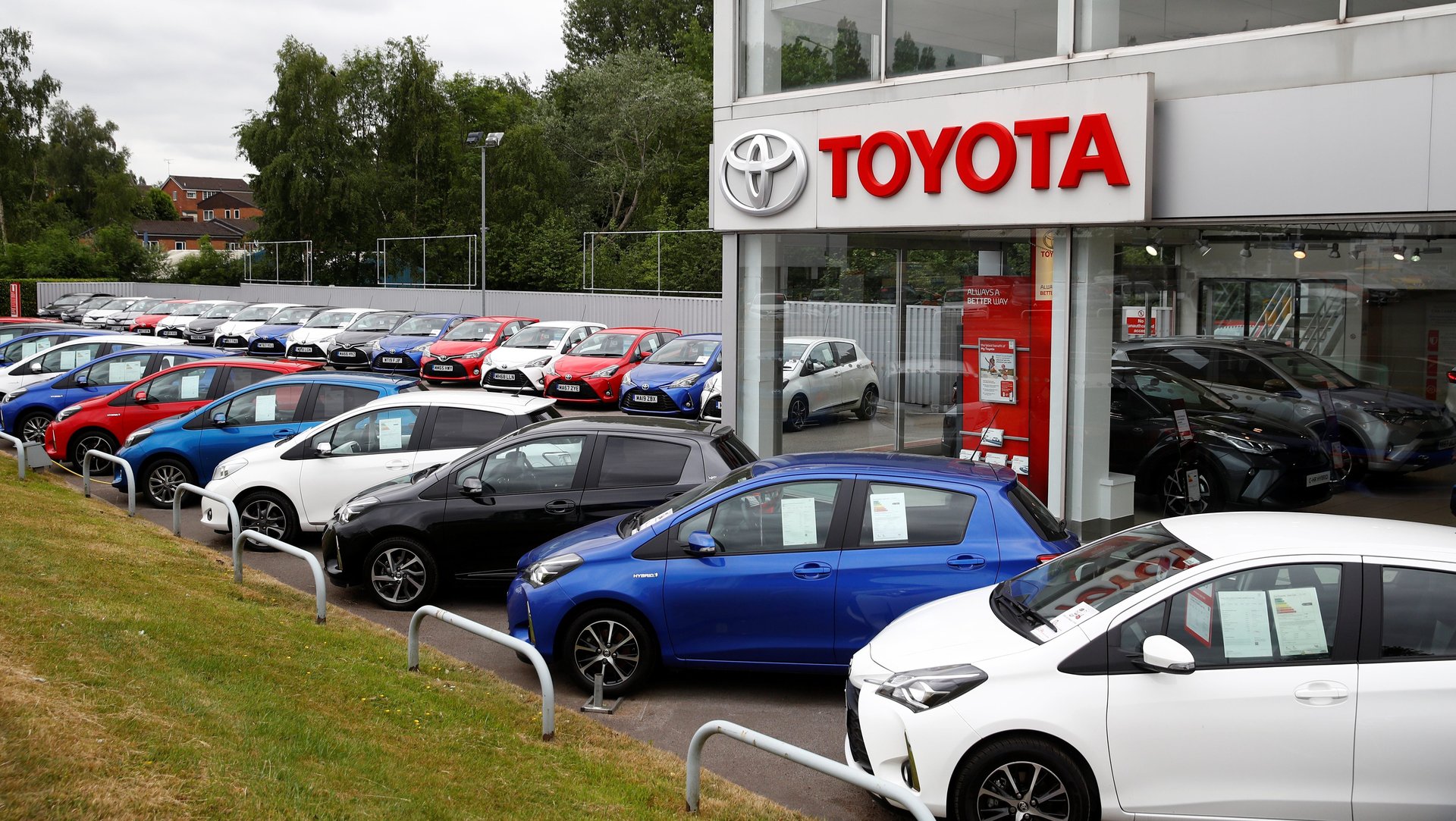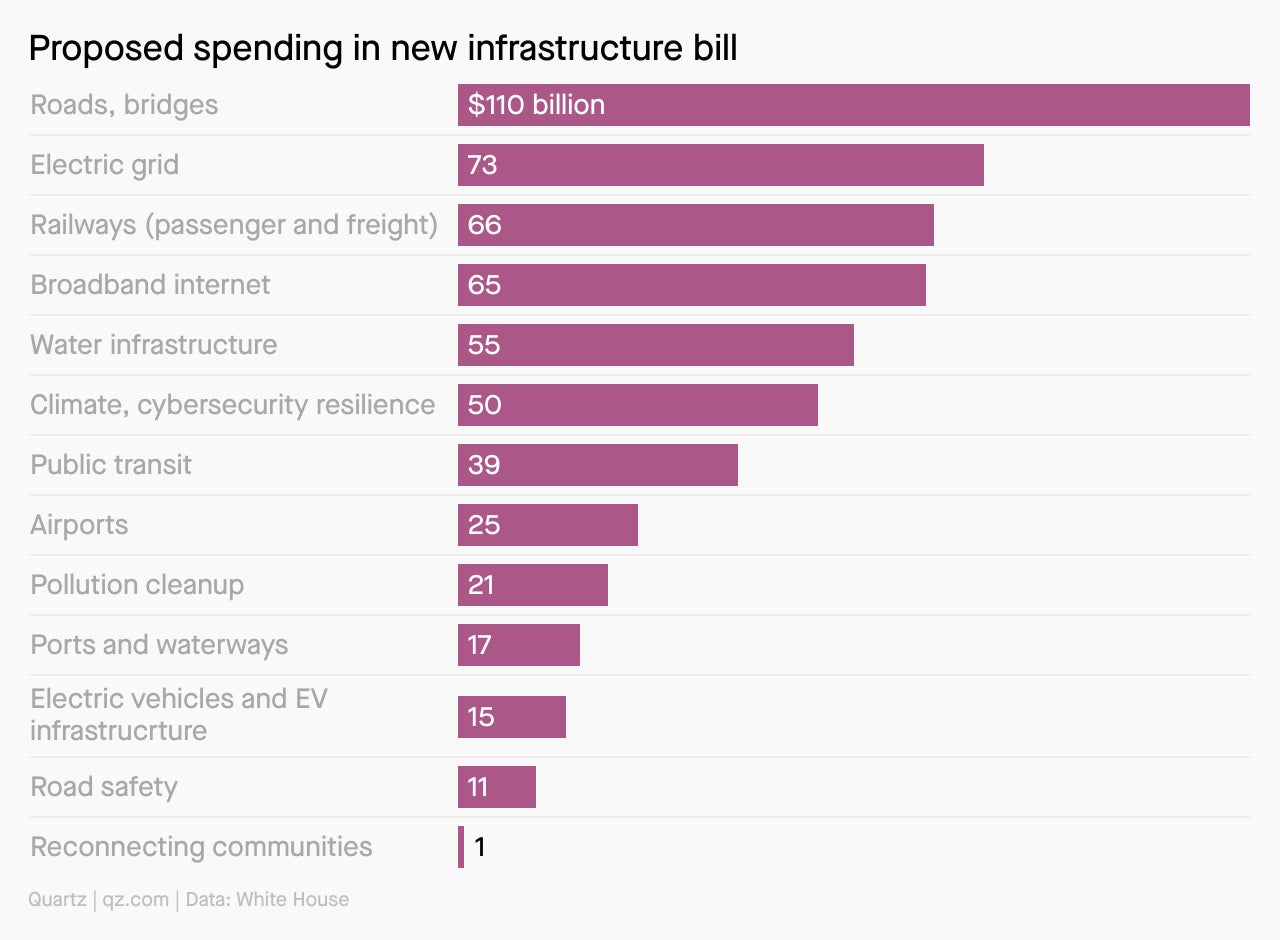Evictions halted, Toyota’s hot streak, happy city mice
Good morning, Quartz readers!


Good morning, Quartz readers!
Was this newsletter forwarded to you? Sign up here. Forward to the person in your life with a great business idea that also makes people blush.
Here’s what you need to know
The Biden administration announced a new eviction moratorium. Renters rejoice in 80% of US counties, while landlords despair, as the Democrat government bows to pressure from within its own party.
Joe Biden wouldn’t mind evicting Andrew Cuomo, however. The US president called for the New York governor to quit after an independent inquiry concluded Cuomo had sexually harassed many women.
At Tropicana, drinks are not free. Pepsi is selling its juice brands for $3.3 billion to a private equity firm.
Sanofi bought into mRNA technology. The French pharmaceutical firm spent $3.2 billion to acquire Translate Bio, a move widely interpreted as an endorsement of the tech beyond the pandemic.
A Chinese state media outlet no longer describes Tencent games as “spiritual opium.” The original piece precipitated a crash in the tech giant’s share price, which has since mostly recovered.
Olympic champions don’t own their races. Jamaica’s Elaine Thompson-Herah, the 100m and 200m gold medallist, says Instagram blocked her—citing TV rights—for posting videos of her victories.
What to watch for
Toyota’s hot streak continues. The Japanese auto giant maker posted record quarterly profits today, making more than $9 billion in the three months up to June 30. Referring to a major cost-cutting program, the company said: “We will continue these activities in the future, but the situation is still unpredictable due to the expansion of Covid-19 in emerging countries, semiconductor shortage, and soaring material prices.”
In the long run, Toyota’s success depends on its ability to produce carbon-free cars that rely on alternative fuel sources. Unlike most other automakers, Toyota originally bet big on hydrogen fuel rather than electric. (The Olympic torch in Tokyo is hydrogen powered, a nod to Toyota’s sponsorship.)
But with hydrogen-powered cars lagging badly behind electric vehicles, the company has adjusted course, slating a line of electric vehicles for release in 2025, as it struggles to catch up to the rest of the industry.
Charting how infrastructure spending affects cities
The US Senate has decided to advance debate on a $1 trillion infrastructure bill whose full text was released on Sunday. The bipartisan compromise is much smaller than the original $3 trillion legislation package proposal, but is still the largest investment in US roads, waterways, and electric utilities in a generation.

At the forefront are US metros, where the majority of US residents live. Urban cores and their surrounding suburban areas stand to benefit from road improvements and carbon emission reduction, and their future will be shaped by desperately needed public transit investment and improvements to public utilities.
What can email do for you?
According to our readers, email newsletters (hey! like this one!) provide just the right amount of information at just the right time. That’s a relief, because that’s just why we write them.
We’re providing our members with four new weekly emails to choose from:
- The Forecast: A look forward at an emerging industry, technology, or trend
- The Company: Context on the companies changing the way other businesses work
- How To: Specific things you can do to work more effectively and solve problems you care about
- The Weekend Brief: A wider lens on the most consequential news story of the week
Let our editor in chief Katherine Bell explain our thinking behind them, or just skip right to taking 40% off a membership, using code QZEMAIL40.
Handpicked Quartz
(👇As always, the first story in this list is paywall-free.)
Surprising discoveries
Cities make us happy. New research found lower rates of depression in people who live in large urban areas.
As Earth’s days grew longer, bacteria released more oxygen. New research from Lake Huron explains how early organisms developed.
Germany is testing electric highways. The idea could reduce truck emissions, but it’s still in the early stages of development.
California’s bacon supply is at risk. A new law, supported by voters, will mean more humane conditions for animals, but only 4% of hog farmers are currently in compliance.
An alpha female has taken charge of a Japanese macaque reserve. This is the first time in the reserve’s 70-year-history that a female is in charge.
Our best wishes for a productive day. Please send any news, comments, alpha females, and bacon hoards to [email protected]. Get the most out of Quartz by downloading our iOS app and becoming a member. Today’s Daily Brief was brought to you by Hasit Shah, Camille Squires, Nicolás Rivero, Scott Nover, and Susan Howson.